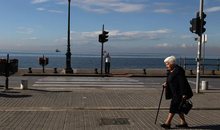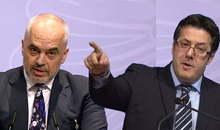
 Flash News
Flash News
The mystery of Renis Dobra's murder, the two main leads of the investigation are revealed
Rama's ultimatum: On Monday, all heads of administrative units must be dismissed
Fires in the country, 4 fires still active, what is the situation?
Rama targets Shkodra prosecutor again: Gjeli wrote philosophical essay with innocence of illegal construction
Wanted for theft, 26-year-old arrested in Durrës
Report: How drug trafficking in the EU is controlled by Albanian gangs, the Port of Durrës plays a key role
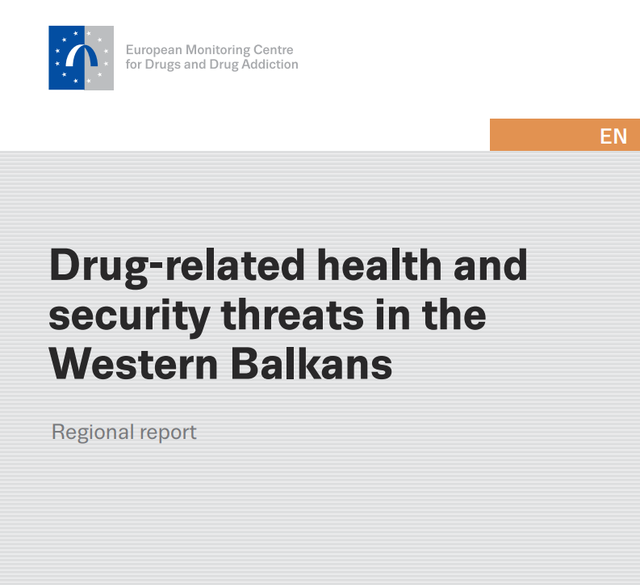
The influence of Albanian-speaking drug groups and gangs is increasingly increasing in the countries of the European Union, according to the report "Drug-related health and security threats in the Western Balkans", by EMÇDA.
The Western Balkans region lies at the intersection of several major drug trafficking routes. Cannabis, cocaine, heroin and synthetic drugs are smuggled in and out of the region.
The report notes that infrastructure linked to the union's countries has increasingly been exploited by Western Balkan gangs, "where some networks now appear to be involved throughout the supply chain, from manufacturing in South America and importing to EU, both wholesale and local distribution."
EMÇDA emphasizes that the high demand for drugs and the high profits from trafficking are the key reasons that have encouraged Albanian drug gangs to engage in illegal trafficking.
"Criminal networks in the Western Balkans have a significant impact on security, governance and the rule of law in the Region. Some of these networks also appear to be active in the EU, with involvement in the production, trafficking and distribution of drugs. Organized criminal networks from the Western Balkans appear to be polycriminal, often engaged primarily in drug trafficking, but also in other illegal activities, including arms smuggling, human trafficking and money laundering," the report says.
The role and influence of BP criminal networks in EU drug markets
Criminal networks from Bosnia and Herzegovina, Montenegro and Serbia are involved in a wide range of criminal activities, including the theft of cars and other luxury goods. The gangs from Albania have reportedly developed a reputation for robbing properties and luxury cars in Western Europe.
Also, according to the report, there are data that Albanian criminal networks have recently been involved in extensive drug trafficking, including close ties with the Italian mafia 'Ndrangheta.
Involvement in cocaine trafficking appears to have been a game-changer for Western Balkan networks, leading to their emergence as key players in the EU drug market. These groups have gradually increased their involvement in the cocaine trade and are now orchestrating trafficking operations from Latin America directly to European ports.
Përfshirja e tyre në trafikimin e kokainësi ka orientuar në dy pika strategjike për transportin e lëndës narkotike, në Belgjikë dhe Holandë. Zgjedhja e këtyre dy vendeve është ndoshta për shkak të rolit qendror që portet e Antëerp dhe Roterdam tani luajnë në importimin e drogës BE-së.
Grupet e Ballkanit Perëndimor tani duket se janë gjithashtu aktorë të rëndësishëm në tregjet e kokainës, heroinës dhe kanabisit të vendeve të tjera të Evropës, si Gjermania, Italia, Spanja, Zvicra dhe Mbretëria e Bashkuar.
Çmimet e kanabisit
Bazuar në të dhënat e disponueshme, çmimi mesatar i shitjes me pakicë i kanabisit bimor në rajon ndërmjet viteve 2018 dhe 2020 ishte rreth 6 euro për gram, ku Shqipëria kishte çmimin mesatar më të ulët (4 euro/g) dhe Serbia më të lartë (7.4 euro/g). Përdoruesit mund të blejnë kanabis bimor në sasi që variojnë nga 0.8 deri në 1.2 gram për një minimum prej 4 euro në Shqipëri – ku mund të blihet edhe 10 gram me një çmim të zbritur prej rreth 30 euro.
Rritja e rolit të porteve të Ballkanit Perëndimor
Disponueshmëria e kokainës në BE është në nivelin më të lartë të të gjitha kohërave, me sasi rekord që janë kapur në Evropë çdo vit që nga viti 2017. Edhe pse ka pasur disa konfiskime të mëdha të drogës në rajonin e Ballkanit Perëndimor në të kaluarën, të dhënat vazhdojnë të sugjerojnë se, në përgjithësi, kontrabanda e kokainës në rajon është shumë e kufizuar në shkallë kur krahasohet me vendet kryesore të BE-së.
Të dhënat paraprake të konfiskimeve në 2021 dhe 2022 tregojnë se roli i luajtur nga portet detare në rajonin e Ballkanit Perëndimor, veçanërisht në Shqipëri dhe Mal të Zi, mund të jetë në rritje.
For example, media reports indicate that in the port of Durrës, Albania, 143 kilograms of cocaine were seized in April 2021 and 119 kilograms in December 2021 (Java Neës, 2022. Similarly, in the port of Tivar, Montenegro, 1.4 tons were seized in August 2021 and a seizure of 500 kilograms was reported in January 2022. Kosovo seized a shipment of 400 kilograms of cocaine in May 2021 after it was smuggled through the Albanian port of Durrës.
Dokumenta bashkëngjitur
Latest news


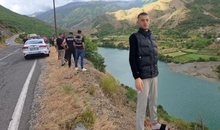
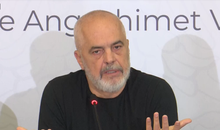
Rama's ultimatum: On Monday, all heads of administrative units must be dismissed
2025-07-11 11:05:59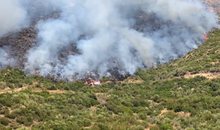
Fires in the country, 4 fires still active, what is the situation?
2025-07-11 10:56:23
Government irony: Rama strips Dredha of power, then demands law and order
2025-07-11 10:49:10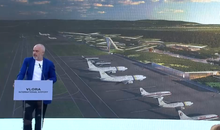
German media: Vlora Airport 'kills' one of Europe's largest wetlands!
2025-07-11 10:37:46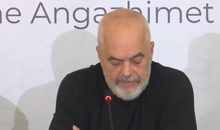
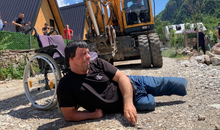
Amid the Alps in Theth, the law punishes even those who try to respect it
2025-07-11 10:14:16
Wanted for theft, 26-year-old arrested in Durrës
2025-07-11 10:03:29
After the dismissals, Rama gathers the mayors in Durrës
2025-07-11 09:42:29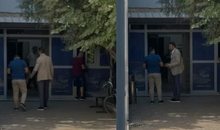
Released on bail, Salianji appears before the Probation Service
2025-07-11 09:34:28

Haxhi Qamil Rama and the directors of the Municipalities!
2025-07-11 09:21:35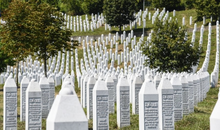
30 years since the Srebrenica massacre in Bosnia and Herzegovina
2025-07-11 09:10:52
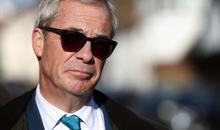
From rhetoric to brandy, POLITICO: 9 things Nigel Farage can do in Albania
2025-07-11 08:53:35
Trump announces 35% tariffs on Canadian goods
2025-07-11 08:39:29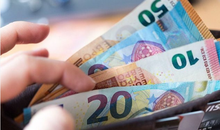
Foreign exchange, how much foreign currencies are sold and bought today
2025-07-11 08:24:25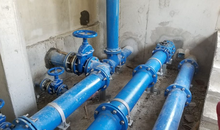

Horoscope, what do the stars have in store for you today?
2025-07-11 07:59:39
Sun and high temperatures, weather forecast
2025-07-11 07:41:09
Morning Post/ In 2 lines: What mattered yesterday in Albania
2025-07-11 07:20:14
Zhupa: In Theth, some Austrian strategic investors want the empty area
2025-07-10 22:57:08
Malltezi: SPAK admits, we are in a process that began with Balla's false report
2025-07-10 22:34:16

Si të çliroheni nga bllokimet emocionale me anë të ushtrimeve
2025-07-10 21:57:24

Lala: Veliaj wanted to return as mayor
2025-07-10 21:40:46

VIDEO/ Brawl in Bolivian parliament, deputies physically clash
2025-07-10 21:20:30


Albania experienced one of the longest heat waves of the last decade
2025-07-10 21:01:09

The Government approves new procedures for declaring residence in e-Albania
2025-07-10 20:39:32

Koka: Northerners will not forget Edi Rama's racist operation in Theth
2025-07-10 20:18:24
The 3 zodiac signs that will be most affected by the 'Full Moon' of July 10
2025-07-10 20:04:49
New director of the National Center of Cinematography appointed
2025-07-10 19:51:12
Korça/ 40-year-old man jumps from fifth floor balcony, in critical condition
2025-07-10 19:40:19
'Tired Woman'/ The Syndrome That Affects Thousands of Women Every Day
2025-07-10 19:34:02
Jane Birkin's original Hermès bag sells for $10 million
2025-07-10 19:26:22

Britain-Ukraine agreement signed for 5,000 Thales missiles
2025-07-10 19:00:25
Fire in Zvërnec, flames endanger two hotels
2025-07-10 18:57:19
Croatia restores compulsory military service
2025-07-10 18:39:01
Spahia: The great truth of the strong accusation of the residents of Theth
2025-07-10 18:35:07


The Supreme Court left him in prison, Meta addresses the 'Constitution'
2025-07-10 17:57:21
New punishment with 'new' regulations
2025-07-10 17:54:46
EU translator fired over fears for Zelenskyy's safety
2025-07-10 17:45:37
'You are a policeman, but not God, take my soul', protest for Agon Zejnullahu
2025-07-10 17:41:21


Video/ Rama repeats the scenario, kneels before Meloni again
2025-07-10 16:56:31
He set fire to a plot of olive trees, 50-year-old man arrested in Shijak
2025-07-10 16:46:19

Rubio: US and Russia have exchanged new ideas for Ukraine peace talks
2025-07-10 16:36:20
Death of 27-year-old, Lipjan Police Commander Resigns
2025-07-10 16:21:28
Video/ An apartment burns in Tirana near the New Bazaar
2025-07-10 16:09:36


Jensila lights up the internet with her birthday greetings to Ledri
2025-07-10 15:42:08
They're full of pesticides! List of 12 products we need to be careful of
2025-07-10 15:31:04

Worker falls from scaffolding in Shëngjin, urgently sent to Trauma
2025-07-10 15:11:03
Malltezi: Within one day they seized my accounts, properties and shares
2025-07-10 15:01:23
EU: Israel has agreed to more aid to Gaza
2025-07-10 14:55:19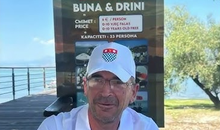


Murder of Reni Dobra, 23-year-old's vehicle pulled from the water
2025-07-10 14:29:23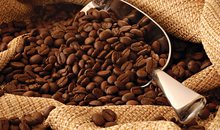
Trump's tariffs on Brazil raise coffee prices
2025-07-10 14:16:07
Ursula von der Leyen survives no-confidence vote
2025-07-10 14:04:27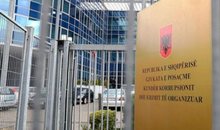

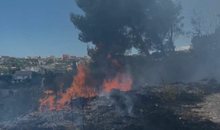
Fire in Lezha, flames near electrical substation
2025-07-10 13:32:24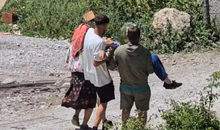
Residents clash with police in Theth, a woman faints
2025-07-10 13:24:38
"Rama and Xanun"
2025-07-10 13:15:46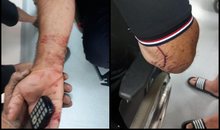

Zodiac signs most likely to get divorced in July 2025
2025-07-10 12:45:51
A scapegoat for an illegitimate Republic
2025-07-10 12:35:02
"He has devastated his own nation"/ Berisha: Rama imprisons his opponents!
2025-07-10 12:26:54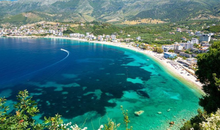

Albanian man injured with knife in Italy
2025-07-10 12:08:55





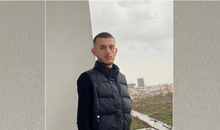
23-year-old in Mat drowned with rope, 4 suspects are being held
2025-07-10 10:58:53
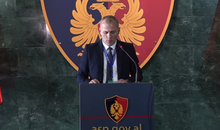
After the dismissals, the new director of the Shkodra Police is appointed
2025-07-10 10:30:10
BIRN: Rama's action for public spaces, a repeated spectacle
2025-07-10 10:29:11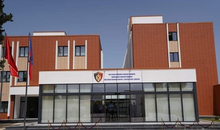
Action in Theth, Shkodra Police leaders dismissed
2025-07-10 10:16:28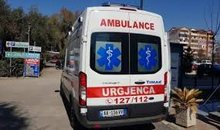
Fatal accident on the Tirana-Durres highway
2025-07-10 10:01:58
The incinerator does not exist, but the government continues to increase funds
2025-07-10 09:51:45